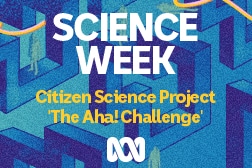Early results from Australia-wide experiment suggest being outdoors can be a good way to trigger “aha” moments.

People are most likely to have a sudden bright idea when out in the bush – or lying in bed.
That’s one of the early observations arising from The Aha! Challenge, the month-long Australia-wide science experiment that kicked off during National Science Week and runs until the end of August.
The experiment, which revolves around a series of online brainteasers, aims to explore sudden bursts of clarity and insight, and their role in problem-solving. In effect, it’s a nationwide quest to find the things that make you go “aha!”…
And so far the results have been very revealing.
Continue reading Searching for insight? Maybe get into nature










